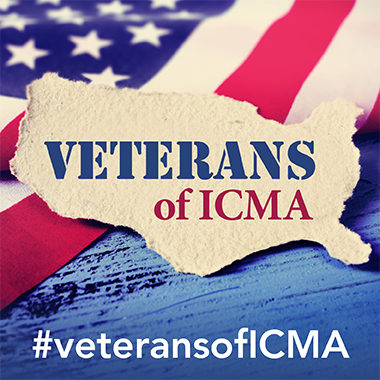
Phillip Cordeiro (PC) is an Iraq and Afghanistan combat veteran who has actively served in the U.S. Marine Corps for seven years plus one year of reserve service. During his transition from active duty to reserve service, he attended the University of North Carolina at Chapel Hill to complete a master of public administration program with a concentration in city and county management. Having recently graduated, he is now the assistant finance director for Hillsborough, North Carolina. His long-term professional goal is to continue his public service career by serving as a city/county administrator.
Read on to find out more about Phillip, why patriotism has played a role in his decision to have a career in local government, and his recommendation for veterans who are transitioning from a career in the military to a career in local government.
Q1: After serving in the military, what interested you in having a career in local government?
PC: My patriotism. I joined the military to repay a debt I feel I owe for the freedoms I enjoy. Similarly, I sought a career in local government because it gives me the opportunity to effect positive change in an institution I believe in, and one that some with whom I have served have sacrificed their lives for.
Q2: What skills/knowledge/background from your military career have you been able to apply to your local government career?
PC: Generally, the most important skills I’ve applied from my military career to my local government career are the ability to perform effectively in stressful situations, make sound decisions in time-compressed environments without complete information, and focus on mission accomplishment. More specifically, my background in military logistics and finance has provided me with a basic foundation for municipal finance and has allowed me to solve problems from a different perspective.
Q3: Do you have any tips/advice for active duty personnel or veterans who are interested in a career in local government?
PC: First, take the time to ‘civilianize’ your resume. Explain your military skills and responsibilities in a way that someone who has never served in the military can easily understand. Second, understand the cultural differences between the military workplace and the local government workplace. Don’t be afraid to mention your military experience and use it to make a positive difference, but don’t wear it on your sleeve either. You may, or may not, be surprised to find that some local government employees will not have a favorable opinion of your military background.
Q4: Are there any educational/professional development programs that you would recommend to veterans who are transitioning from a career in the military to a career in local government?
PC: Social media resources like LinkedIn and Facebook are valuable, and can greatly facilitate your transition if used properly. Utilizing these tools to connect with veterans at your desired employer, and in your desired industry, can help you acquire information about job openings, organizational culture, etc. Additionally, I think many people would be surprised by the willingness of veterans who have already successfully made their transition to provide advice and serve as mentors to veteran job seekers who take the initiative to reach out in a meaningful and professional way.
New, Reduced Membership Dues
A new, reduced dues rate is available for CAOs/ACAOs, along with additional discounts for those in smaller communities, has been implemented. Learn more and be sure to join or renew today!
